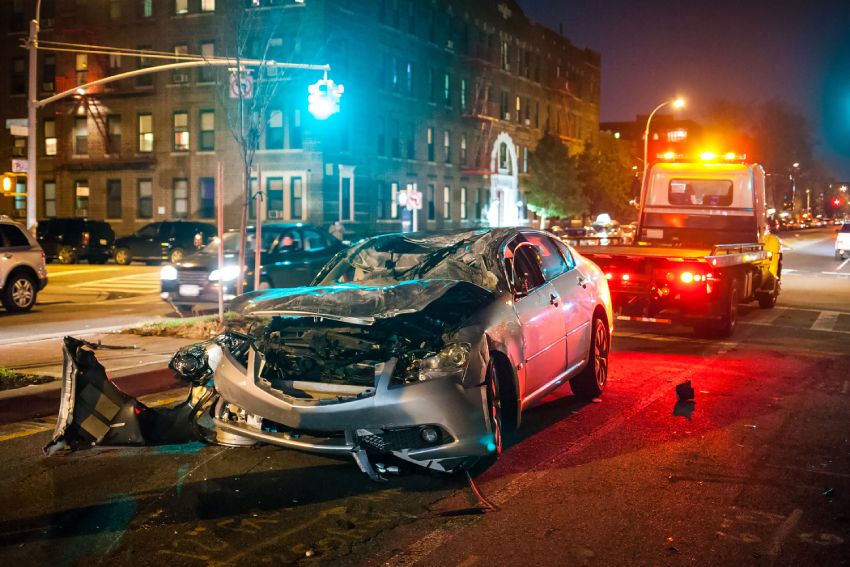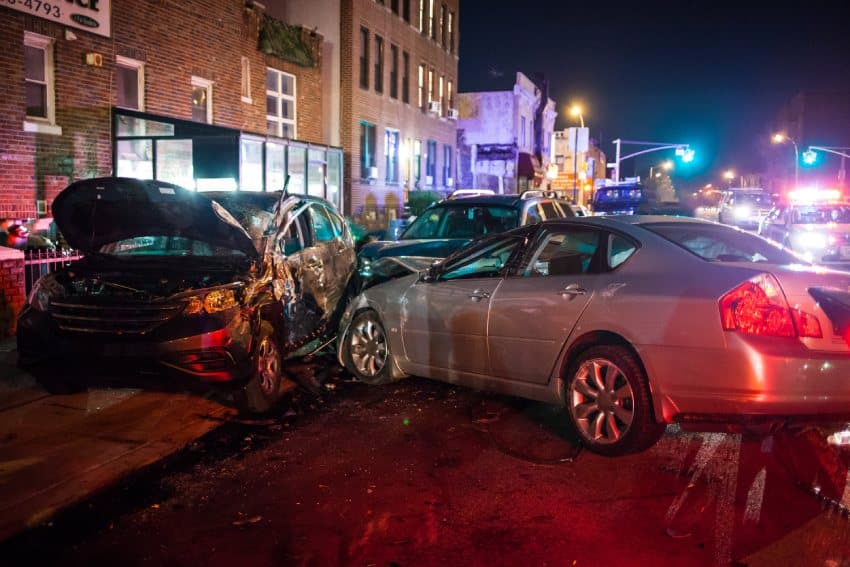If you’re in a crash in CA, you might need an accident report. A crash report is completed by CA Highway Patrol or local police. It sets out what happened to cause a crash and who caused the accident.
If you’ve never read a crash report before, you might not know what to expect. Below, we explain what’s in a typical CA crash report and how to get a copy of your report.
Do I Need a California Crash Report?
You need a report if there are any fatalities or injuries due to the crash. You may also need a report if there’s significant property damage e.g. over $1000.
It’s usually best to err on the safe side and report any collision to law enforcement and/or the DMV.
- There’s always the chance that an injury doesn’t appear for a few days.
- Property damage could be more costly than you first thought.
Your license may be suspended and you could be fined if you don’t report a crash when you need to. Seek legal advice or call the authorities if you’re unsure about what to do.
Why Are Crash Reports Important?
There are four reasons why you should get a copy of your California crash report.
- You can submit your report to your insurance company. This may help them determine liability and speed up the settlement process.
- If you’re injured, you can give your report to your car accident attorney. The report helps them value your claim and how much it’s worth.
- Mistakes can affect your chances of making a successful claim. When you have a copy of your report, you can fix errors before moving forward with claims or lawsuits.
- You might be legally required to have a crash report. The sooner you get a copy, the quicker you can meet any legal obligations.
What’s in a California Crash Report?
Officers use specific forms to complete crash reports in CA. This is great because once you know how to read one accident report, you can read them all!
Every California crash report contains the following information. Let’s break a report down, section by section.
Accident Details and Special Conditions
Every report contains key details relating to the accident. Such details include:
- Accident date and time
- Location of the accident
- Number of vehicle(s) involved
- Any fatalities
If it’s a hit and run, this is also noted in the report as a special condition. Officers will also specify if there are criminal charges or citations e.g. DWI/DUIs.
Driver Details
The report should contain the various drivers’ details. This information includes, but is not limited to:
- Full name
- License number
- State of license
- Contact information
- Insurance information
The make, model, and license plate number of any vehicles involved will also be in the report. If any of these details are incorrect, it could affect an insurance claim or civil lawsuit. Contact the CHP or your local police department without delay.

Injury Information
Car accidents often cause injuries – even if it’s just minor cuts and bruising. If anyone is hurt in the accident, this is noted in the crash report. This section includes information such as:
- Obvious injuries e.g. broken bones
- Deaths at the scene
- Time of paramedic/EMT attendance
- Hospital(s) attended
Injuries are not always obvious at the time of the crash. An attorney can explain what happens if injuries are confirmed after the collision report was filed.
Officer’s Narrative
The officer’s narrative is crucial to a California Highway Patrol crash report. It specifies who appears to be at fault for the crash.
- The officer writes up a step-by-step account of what allegedly happened to cause the crash.
- To write up the narrative, the officer considers the statements made by all parties. They will also talk to any witnesses available.
- Before completing the narrative, the officer will inspect the scene. They will look for evidence to corroborate what happened e.g. skid marks, road debris.
If the officer’s narrative is incorrect, your attorney can explain how to challenge it.
Factual Diagram
It’s common for officers to draw a diagram of the accident scene. The diagram is based on the evidence available and the various accounts of what happened.
Diagrams show, at-a-glance, how an accident unfolded. However, they’re based on an officer’s interpretation of what happened. They are helpful to refer to but they can be challenged if they’re not accurate.
Supporting Evidence
There may be additional evidence, such as photos, available to help prove what happened. Examples of supporting evidence include:
- Photos of injuries and property damage
- Photos of the road conditions
- Video footage e.g. dashcam footage
If any party can provide such supporting evidence, it’s included in the report. Attorneys and insurance companies can look at this evidence when deciding how to settle a claim.
Witness and Passenger Details
If there are any witnesses, such as pedestrians or passersby, their details are included in the report. This makes it easy for parties such as your attorney to gather evidence to support your case. For example, a witness might be able to testify that you didn’t cause the accident.
Furthermore, if there were any passengers involved in the collision, their details are noted in the report. Passengers may be able to provide evidence but they may also have their own injuries and property damage to consider.
How to Get a California Highway Patrol Crash Report
There are a few ways to get a copy of a CA crash report.
- Request a copy of a CHP report by contacting a CHP area office. Charges may apply for using this service.
- If the local police completed your report, you can contact your local police department for a copy. You might also get a copy from the DMV.
- Contact Accident Records to get a free copy emailed straight to your inbox.
You need to be a “proper party of interest” to get a crash report in CA. This means that you need to have a legitimate reason for seeing the report. A proper party of interest could be, for example, a driver, passenger, or property owner.
Get California Highway Patrol Crash Report Information
Do you need a crash report in CA? We can help. Just complete our simple form and we’ll connect you with the attorney or agent that can help you get the report!
It’s free to use our service and we only need a few details to get started. Get your California crash report today!
